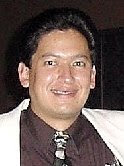
(by Shanken News Daily) As Connecticut’s General Assembly begins its 2012 regular session today, lawmakers once again will reconsider the state’s law against Sunday sales of alcohol, following last month’s proposal by Connecticut Governor Dannel Malloy to lift the ban.
Malloy’s plan would allow retailers to remain open until 10 p.m. (compared to the current 9 p.m.) seven days a week and would permit bars and restaurants to sell alcohol until 2 a.m. (Bars and restaurants now can serve alcohol until 1 a.m. Monday-Thursday and Sunday, and until 2 a.m. Friday-Saturday.) Other proposed licensing changes by Malloy include the elimination of minimum pricing.
In the past, Connecticut’s liquor retailers have successfully battled attempts to repeal the Sunday sales ban, with their efforts led by the 1,100-member Connecticut Package Stores Association (CPSA). In a January 2011 legislative debate on the issue, the CPSA estimated that Sunday sales would bring in just $140,000 in new tax revenue—a number that differs sharply from the Distilled Spirits Council (DISCUS) analysis, which said Connecticut Sunday sales would reap $8 million in incremental annual tax revenue. The CPSA has also claimed that lifting the Sunday sales ban would shift 20% of the state’s beer sales from independent retailers to supermarkets. (The state’s supermarket operators favor lifting the Sunday sales ban, hoping to increase their beer sales on one of the week’s busiest supermarket shopping days.)
Mike Cimini is president, CEO and owner of Great Spirits, which operates two Connecticut stores: Save-Rite Liquors in North Haven and Great Spirits in Southington. His company also has two stores in Massachusetts: Austin Liquors in Worcester, and another Austin Liquors in Shrewsbury. Cimini, who is a CPSA member, is strongly against lifting Connecticut’s Sunday sales ban.
“I think this proposal has a chance because Governor Malloy is such a strong proponent, but I hope the legislature will consider the impact on an industry filled with some of the last small businesses left in Connecticut,” says Cimini. In Massachusetts, Cimini saw no major change in his business after the Sunday sales ban was lifted in 2004. “All it did was divide six days’ worth of sales into seven,” he adds.
But some retailers favor Sunday sales. Michael Berkoff, president and CEO of BevMax, which has five Connecticut locations (in Stamford, Norwalk, Hamden, Bridgeport and West Haven) as well as a store in Port Chester, New York (on the New York-Connecticut border), believes it’s time for a change. “We are for Sunday retail sales,” he says. “If you can go to a bar or restaurant and get served on a Sunday, why shouldn’t the consumer be able to purchase product in a closed container and consume it at home?”
Other support for the plan also tends to come from retailers who operate near Connecticut’s borders with Massachusetts, Rhode Island and New York, states where Sunday sales are allowed. These retailers generally favor the change because they’re losing Sunday shoppers to out-of state rivals.
Malloy will include the new licensing proposals in his agenda that’s being submitted to the state legislature as the general session begins. The licensing plan will be raised by a committee (likely the General Law Committee, in charge of beverage alcohol), and then be given a public hearing and a committee vote. If the vote is favorable, legislation will be sent to the Assembly and Senate floor. It’s not yet clear when a successfully passed law would be implemented, but some proponents envision the Sunday sales ban being lifted as early as this summer.
Connecticut is one of only two states in the country (the other is Indiana) that bans the retail sale of all alcohol on Sundays. The proposals in the past have been blocked by the General Law Committee and have never made it to the floor for a vote.


No comments:
Post a Comment